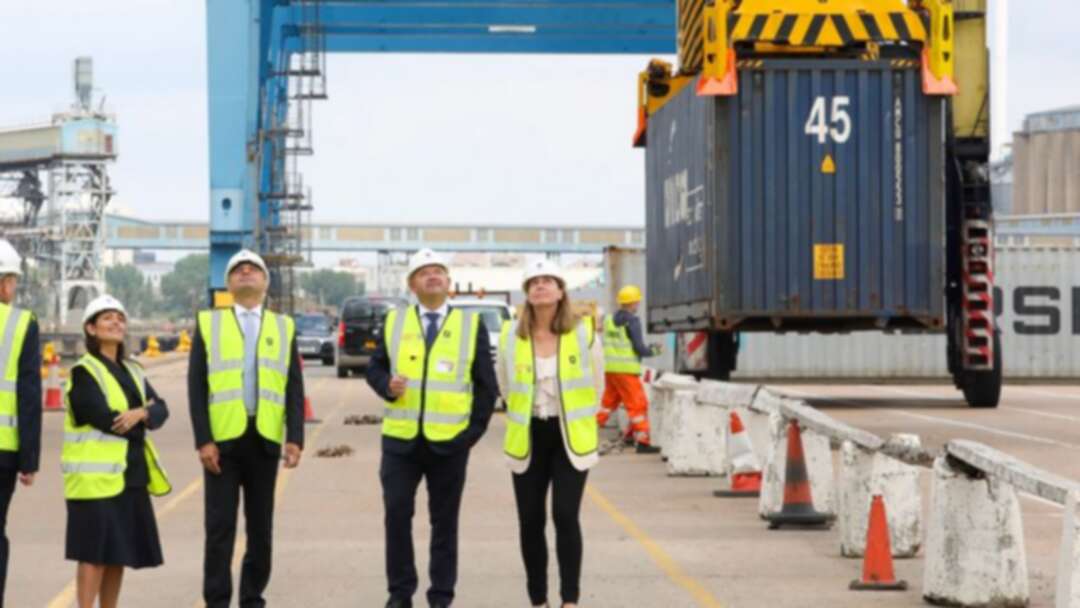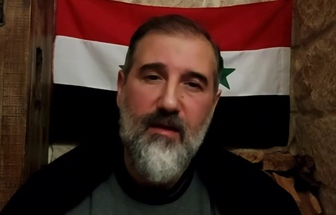-
Britain to spend an extra £2.1 billion on no-deal Brexit planning

Prime Minister Boris Johnson, who took power last week, has pledged to leave the European Union without transitional arrangements in three months’ time unless the EU agrees to renegotiate the deal reached by his predecessor Theresa May.
In his first major policy announcement, new finance minister Sajid Javid said the outlay would allow the government to increase training for customs officials, hire more staff to deal with an expected increase in passport applications, and improve infrastructure around ports.
Javid said the United Kingdom’s economy was strong enough to cope with a no-deal Brexit and rejected criticism that the money would be better spent on healthcare or education.
“A lot of the work was going on but (what) we needed to do was turbo charge it to make sure we are properly, genuinely ready,” he said on a tour of a Tilbury Docks near London.
The main opposition Labour party branded the spending an “appalling waste of taxpayers’ cash” because the majority of lawmakers in parliament had made clear their intention to block an exit without a withdrawal agreement.
Wrenching the United Kingdom out of the EU without a deal means there would be no formal transition arrangements to cover everything from post-Brexit pet passports to customs procedures on the Northern Irish border with EU member Ireland.
Many investors say a no-deal Brexit would send shock waves through the world economy, tip Britain into a recession, roil financial markets and weaken London’s position as the pre-eminent international financial centre.
Supporters of Brexit say that while there would be some short-term difficulties, the disruption of a no-deal Brexit has been overplayed and that in the long term, the United Kingdom would thrive if it left the EU.
Javid warned the EU that if a new deal is to be agreed then one of the most hotly contested elements of the divorce agreement - the Irish border backstop - will have to be struck out, something the bloc has repeatedly said it won’t agree to.
“We have been clear we want to get a deal, but it has to be a different deal, a good deal, one that abolishes this undemocratic backstop, and if we cannot remove that backstop then we have to leave with no deal,” he said.
The backstop is an insurance policy accepted by May that would force Britain to continue obeying some EU rules if no other way could be found to keep the land border open on the island of Ireland. Dublin and Brussels say an open border is crucial to preserving the 1998 Good Friday accord that ended decades of Irish sectarian conflict.
“TURBO-CHARGE NO-DEAL”
Britain’s finance ministry will provide an immediate cash boost of 1.1 billion pounds and make a further 1 billion pounds available for government departments and the devolved administrations in Scotland, Wales and Northern Ireland.
This means the government has in total allocated 6.3 billion pounds to prepare for a no-deal exit, including 4.2 billion pounds of funding for this financial year.
The finance ministry said that, among other initiatives, 434 million pounds would be spent to ensure vital supplies of medicines and medical products can be brought into the country, including hiring additional freight capacity, warehousing and stockpiling.
To get people and businesses ready for a no-deal Brexit, 138 million pounds will be spent on one of the biggest peacetime advertising campaigns and provide extra consular support for citizens living overseas.
A total of 344 million pounds would be spent on new border and customs operations, including hiring an extra 500 border force officers and doubling the support for customs agents to help companies fill in customs declarations.
Brexiteers accused Javid’s predecessor Philip Hammond, who opposed leaving the EU without a divorce deal, of failing to spend enough money to get Britain ready for a no-deal Brexit and thereby undermining its negotiating position with Brussels.
The Labour party condemned the spending plan. “This government could have ruled out no deal, and spent these billions on our schools, hospitals, and people,” said John McDonnell, the party’s finance chief.
Chief Secretary to the Treasury Rishi Sunak rejected those assertions. “It is my job to make sure that we spend taxpayers’ money wisely. The good news here is a lot of this money and a lot of this investment (are) things we need to do in all cases because we are leaving the European Union,” he said.
“What we are doing is accelerating the urgency of when we spend that money and making sure it is spent now.”
Sunak said more detail on the planned expenditures would come at a spending review and fiscal event later in the autumn.
You May Also Like
Popular Posts
Caricature
BENEFIT Sponsors BuildHer...
- April 23, 2025
BENEFIT, the Kingdom’s innovator and leading company in Fintech and electronic financial transactions service, has sponsored the BuildHer CityHack 2025 Hackathon, a two-day event spearheaded by the College of Engineering and Technology at the Royal University for Women (RUW).
Aimed at secondary school students, the event brought together a distinguished group of academic professionals and technology experts to mentor and inspire young participants.
More than 100 high school students from across the Kingdom of Bahrain took part in the hackathon, which featured an intensive programme of training workshops and hands-on sessions. These activities were tailored to enhance participants’ critical thinking, collaborative problem-solving, and team-building capabilities, while also encouraging the development of practical and sustainable solutions to contemporary challenges using modern technological tools.
BENEFIT’s Chief Executive Mr. Abdulwahed AlJanahi, commented: “Our support for this educational hackathon reflects our long-term strategic vision to nurture the talents of emerging national youth and empower the next generation of accomplished female leaders in technology. By fostering creativity and innovation, we aim to contribute meaningfully to Bahrain’s comprehensive development goals and align with the aspirations outlined in the Kingdom’s Vision 2030—an ambition in which BENEFIT plays a central role.”
Professor Riyadh Yousif Hamzah, President of the Royal University for Women, commented: “This initiative reflects our commitment to advancing women in STEM fields. We're cultivating a generation of creative, solution-driven female leaders who will drive national development. Our partnership with BENEFIT exemplifies the powerful synergy between academia and private sector in supporting educational innovation.”
Hanan Abdulla Hasan, Senior Manager, PR & Communication at BENEFIT, said: “We are honoured to collaborate with RUW in supporting this remarkable technology-focused event. It highlights our commitment to social responsibility, and our ongoing efforts to enhance the digital and innovation capabilities of young Bahraini women and foster their ability to harness technological tools in the service of a smarter, more sustainable future.”
For his part, Dr. Humam ElAgha, Acting Dean of the College of Engineering and Technology at the University, said: “BuildHer CityHack 2025 embodies our hands-on approach to education. By tackling real-world problems through creative thinking and sustainable solutions, we're preparing women to thrive in the knowledge economy – a cornerstone of the University's vision.”
opinion
Report
ads
Newsletter
Subscribe to our mailing list to get the new updates!






















